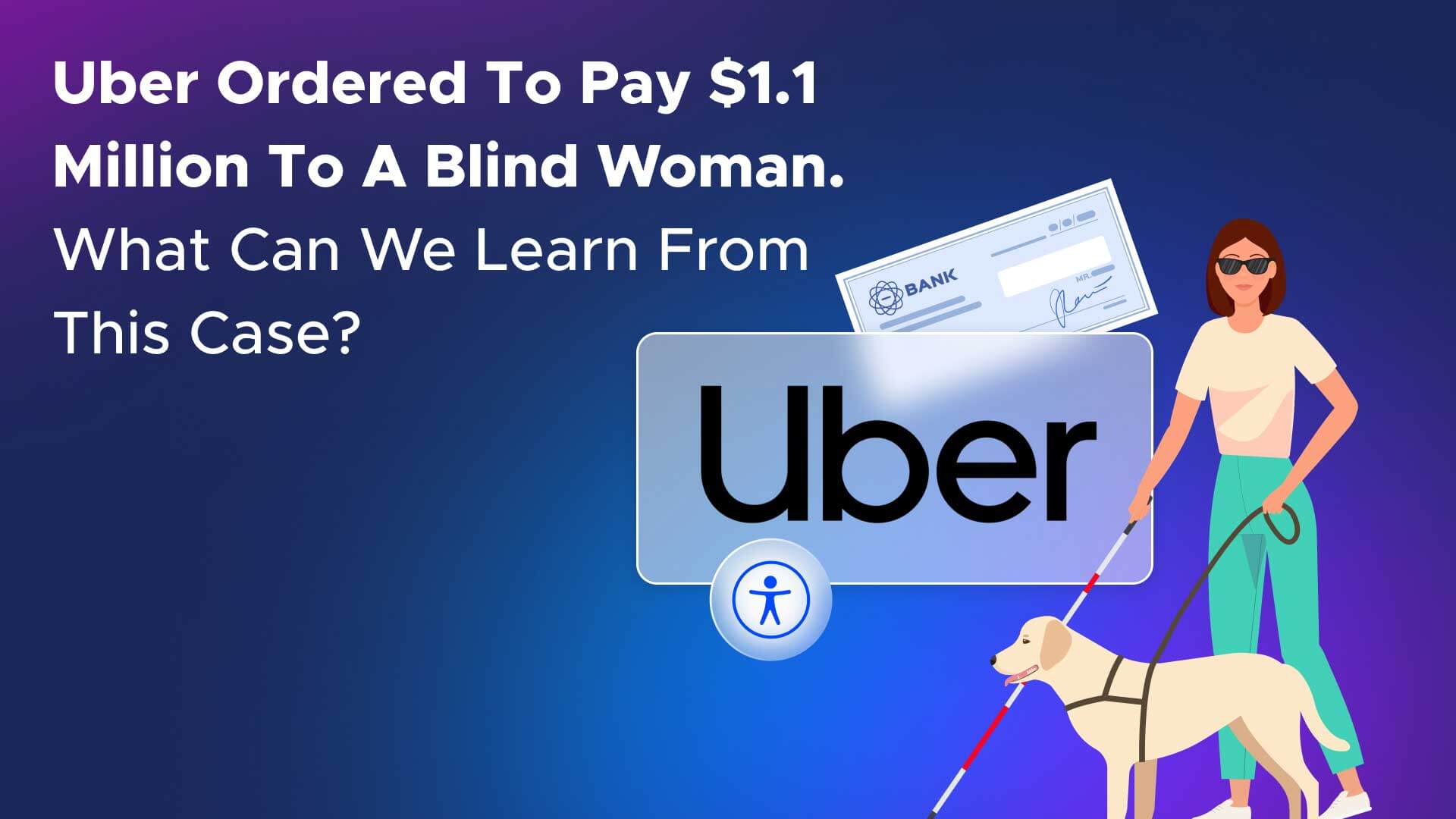Uber Ordered to Pay $1.1 Million to a Blind Woman. What can we Learn From this Case?

Lisa Irving, a California resident, said she was denied rides or verbally abused by drivers 14 times in 2016 and 2018, Irving’s attorney Adam Wolf told CNN.
The arbitrator rejected Uber’s (UBER) argument that it was not responsible for its drivers’ violations of the Americans with Disabilities Act (ADA) because they are independent contractors.
“Whether its drivers are employees or independent contractors, Uber is nonetheless subject to the ADA as a result of its contractual relationship with its drivers,” the award said.
Uber’s Response
Uber responded by saying the company disagreed with the award and claimed its community guidelines prohibit drivers from denying rides to passengers with service animals.
“We are proud Uber’s technology has helped people who are blind obtain rides and regret Ms. Irving’s experience. Drivers using the Uber app are expected to serve riders with service animals and comply with accessibility and other laws, and we regularly provide education to drivers on that responsibility.
Our dedicated team looks into each complaint and takes appropriate action,” the company stated. “Uber is liable for each of these incidents under the DOJ interpretation of the ADA as well as due to Uber’s contractual supervision over its drivers and for its failure to prevent discrimination by properly training its workers,” the award said.
Accessibility = No Discrimination
Irving’s attorneys filed a petition to affirm the award. “Of all Americans who should be liberated by the rideshare revolution, the blind and visually impaired are among those who stand to benefit the most.
However, the track record of major rideshare services has been spotty at best and openly discriminatory at worst.
The bottom line is that under the Americans with Disabilities Act, a guide dog should be able to go anywhere that a blind person can go,” Irving’s attorney Catherine Cabalo said in a statement.
Uber is an offline example of how things can go wrong when it comes to accessibility, even if one’s intentions are good.
Whether it is off or online, accessibility is a right that everyone should be afforded. People with disabilities should have barrier-free access, and as a society, we should do our best to support that right.
Is your website ADA Compliant? Don’t be the next legal target.
Unfortunately, determining what is required to make a website “ADA compliant” is not entirely straightforward. The Department of Justice (“DOJ”), the agency responsible for implementing regulations for the ADA’s general nondiscrimination mandate, has yet to establish standards for private business websites.
In this vacuum, many have turned to us to find out whether they are compliant. As a first step, we suggest you check out UserWay’s scanner. UserWay’s Scanning and Monitoring service runs more tests than any other accessibility service available today.
Our underlying rule engine is continuously updated to reflect the latest WCAG requirements and helps ensure new violations are flagged as soon as they occur on your site.
Protect your Agency & avoid legal risks
While your websites may be accessible most of the time, don’t wait for the moment one of them fails to be compliant. As we witnessed in Uber’s case, although the company stated they were committed to being accessible, some of their drivers were allegedly not aligned with that commitment.
When your agency is running a large number of websites, there is room for mistakes. Automated accessibility tools can help ensure your sites are fully compliant and help your customers serve everyone in an equal manner.




Share